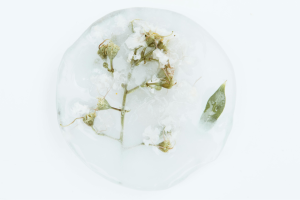
By Rachel Clarke - Celebrants Aotearoa President
The circle-of-care is a concept I find useful when we consider the end-of-life / death-care space and those working within it; for example, nurses, doctors, support workers, death doulas, hospice, funeral directors and celebrants. All have something to contribute at various times both individually and when working together.
The concept of the circle-of-care resonates for me with my background as a nurse, where multidisciplinary practice and teamwork are firmly embedded.
In a changing landscape where families are often interested in doing more, there is a need for all providers of care to families to remain flexible and responsive in the care they provide. All those involved in providing client and family-centered care need to ask themselves, "What does the family want and when might they need it?"
Families may choose to approach a celebrant or death doula directly, particularly when thinking about end-of-life choices and care. Many families are choosing to be actively involved in the end-of-life care of their loved one and it is in this context that this conversation is critical.
Traditionally, celebrants are key to the provision of a meaningful farewell, whether their role is that of educator, coach, or facilitator. However, with the financial impact of funeral, burial, and cremation costs for whānau there has been an increase in direct cremations, as well as a growing trend for families to not hold any form of ceremony: about 37 percent, I understand, from recent research. These trends highlight the need for all involved to understand and educate whānau and communities on the importance of a meaningful farewell.
Celebrants understand the value of rituals and gatherings to farewell our dead. Being calm and grounded professionals, Celebrants Aotearoa celebrants can explain to families the significance and value of a funeral or memorial ceremony. In getting to know the deceased, they ensure an authentic and meaningful ceremony is created that suits the family’s needs. Celebrants walk alongside families providing emotional support through deep listening, non-judgement, and empathy.
On the day of the farewell, they create a safe environment using the structure of ceremony; no matter how small or large the gathering; however formal or informal the proceedings. Within the ceremony exist elements of ritual, poetry, music, whakataukī, prayer, life story and memories… - whatever is appropriate for the deceased and the loved ones they leave behind. This allows whānau and their community to be present and grieve on the day.
The celebrant can also act as a buffer when tensions arise and ensure that each person at the planning table has a voice. And finally, a celebrant’s aim is to ensure that a life is celebrated honorably, with dignity and compassion.
Professional celebrants bring professional care and value because they’re equipped with the skills and resources to support grieving family/whānau; working with them to create personal and meaningful farewell rituals whilst respecting their needs and wishes.
Celebrants Aotearoa continues to promote the value of a farewell gathering after a death, aiming to assist those who suffer loss to move into a healthier bereavement.
You can find a Celebrants Aotearoa celebrant by going to our website: celebrantsaotearoa.co.nz
